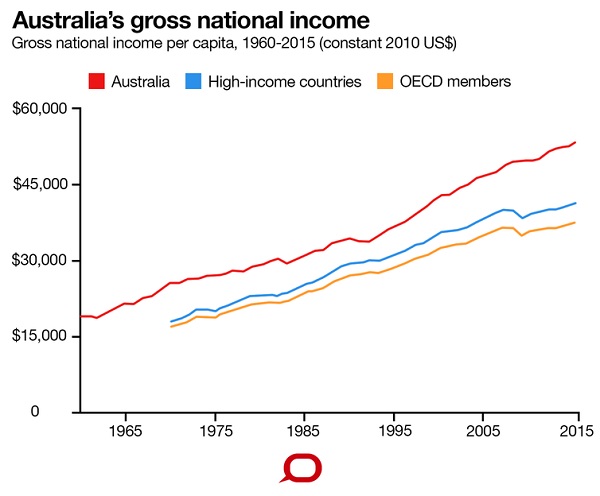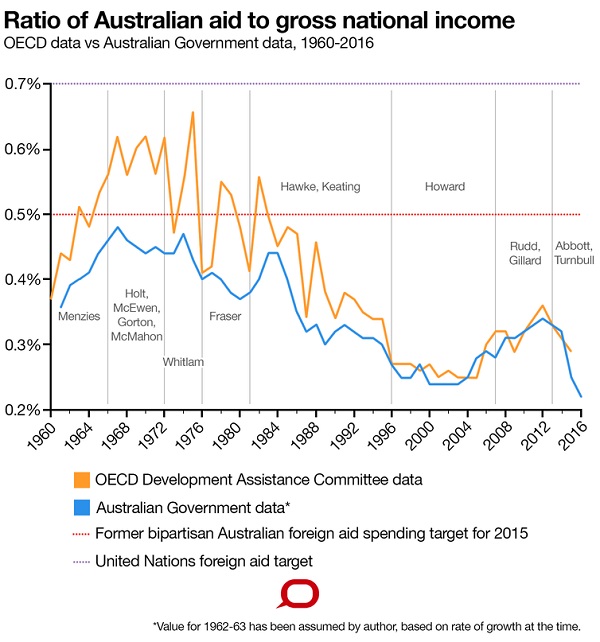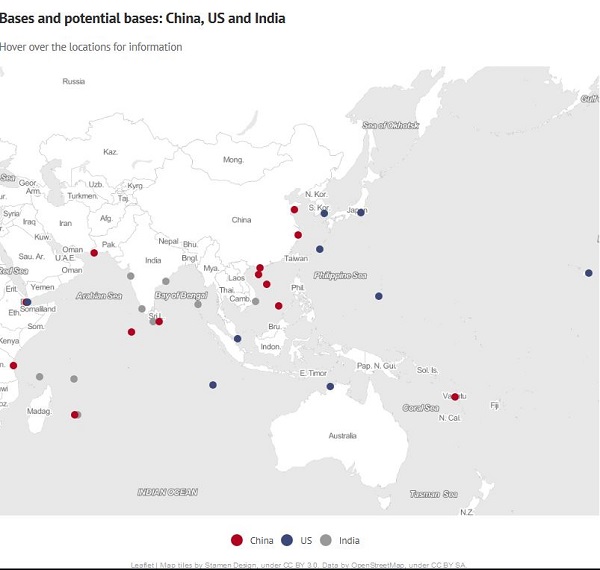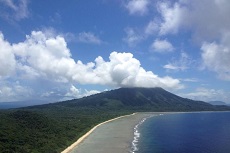We are all going to be thinking more about China for the rest of our lives, for better or for worse. Apart from trade we were most recently startled by the notion that China may be about to build a military base in Vanuatu. Fairfax announced that China eyes Vanuatu military base in plan with global ramifications. A day later we had Chinese military base in Pacific would be of ‘great concern’, Turnbull tells Vanuatu. Followed rapidly by denials by China and Vanuatu, both of which were a bit cranky over the suggestion.
However, China is building a cruise ship terminal near a new international airport it is funding, together with a new official residence for Prime Minister Charlot Salwai as well as other government buildings. Then there was a 1000-seat convention centre, a major sports stadium, and a $14 million school that will be reportedly the biggest education facility in the South Pacific. Early last year, Beijing donated 14 military vehicles to Vanuatu.
Vanuatu is becoming vulnerable to the “debt-trap strategy” that has left a number of countries swimming in debt, where:
- the Centre for Global Development (CGD), an international think tank, suggests its program has already left eight countries swimming in debt: Djibouti, Kyrgyzstan, Laos, the Maldives, Mongolia, Montenegro, Pakistan and Tajikistan.
Vanuatu, population 270,000 owes around $440 million in foreign debt, nearly half of it to China.
- China has set a pattern in the Indian Ocean whereby it builds infrastructure paid for by concessional Chinese loans which the local government cannot repay. When the government defaults, China enacts a “debt-equity swap” and takes over the asset.
The country then becomes a client state.
Shadow Minister for Defence Richard Marles told Patricia Karvelas that Australia must show more leadership in the Pacific, warning about complacency and our priorities. We badly need to spend more. Early in 2017 The Conversation published a factcheck that found the LNP government had cut foreign aid by about a third, and in per capita terms we contributed twice as much as now in the Menzies era when we were half as rich.
This is what our wealth looks like:

We’ve been doing handsomely according to that, but our record on aid could scarcely be worse:

One of the richest countries in the OECD, but so far away from international benchmarks, what we do does not even amount to a token effort. As pretenders we can’t complain if our Pacific neighbours look elsewhere.
The New Daily looks at the strategic implications.
- National security expert Professor Rory Medcalf wrote on Tuesday that one possible explanation was “a presence that could support [and protect] contentious resource-exploitation activities … such as intensive fishing and seabed mining”.
Vanuatu could also be used to provide a base from which to train the military forces of small Pacific nations “as it extends influence over them”, wrote Professor Medcalf, who heads the National Security College at the Australian National University.
Dr Graham said whatever China was up to in Vanuatu and the Pacific region more generally, the reported plans signalled a huge shift in the dynamics in the region.
“If there’s a penny that has dropped here it is that this is no longer the Australian backyard that it was in the ’80s or ’90s … like many other regions where the hold on power is up for grabs.”
Of course we should have seen this coming. Now if we don’t like it, we’ll have to learn to put up with it. Jawboning from a position of weakness is likely to make matters worse.
Realistically, though, this map from Bloomberg shows that the strategy is probably more about surrounding India and breaking the US web of power. We have limited relevance, apart from a source of raw materials and food.



“Hence, when able to attack, we must seem unable;
When using our forces, we must seem inactive;
When we are near, we must make the enemy believe we are far away;
When far away, we must make him believe we are near.”
Sun Tzu.
WARNING: Not South Pacific.
Not PRC.
Ah yes, Brian: “the debt-trap strategy”.
An American friend who arrived in Gippsland a dozen years ago, with funds totalling about 80% to 90% of the price of a family home, having sold their house in the US, went to a bank to borrow about $60,000 AUD, to help the family buy a house.
Bank loans person, “I see that on your wage, you would be eligible to borrow $200,000!”
Customer, “No thanks. Just the $60,000 will be fine.”
Bank staff, “Ah, but think of it. You could buy a boat, maybe a new caravan; or a share in a beach house.”
Customer, “Just $60,000, please.”
Customer had to be very firm.
++++++++++++++
Makes me wonder if the bank person was on some sort of incentive scheme??
Schadenfreude in spades. 🙂
Decades after Tom Burns and Gough Whitlam successfully established formal links with the Peoples Republic of China, Australia’s great-and-glorious business, political and academic aristocrats still remain wilfully ignorant of the Chinese people, their ways and their ambitions.
Almost 30 years ago, (when I was in Beijing), it was obvious to anyone, who was not either dead-drunk or demented, that the Chinese authorities were being very nice to Fiji and to Western Samoa. Brotherly love? Of course it was; what else could it have been? Papua Niugini, the Solomons, Vanuatu, they were on the shopping list too, (Tonga didn’t come into the picture way back then). So why didn’t Australia’s decision-maker start making unobtrusive counter-measures to protect our influence in the South Pacific back in those days? Perhaps they felt that a bunch of bush-kanakas were not worth the bother, especially when the comings and goings of political celebrities in Washington, New York and London were far more fascinating.
So now these wasters of oxygen and space are fretting and fussing over Chinese armed presence in Vanuatu – AFTER they themselves had agreed to the hilarious 99-year lease of the Port of Darwin and other follies – and with the stationing of units of the Chinese Peoples’ Liberation Army elsewhere on the Australian mainland a real possibility. My suggestion is that these losers accept that their own laziness and stupidity has brought conquest without warfare down on themselves; they should just run along, behave themselves and shut up: that is, after they have kowtowed three times to our new masters.
Jump(y):
Thanks for those quotes.
You might care to go beyond Master Sun and look up “36 Strategies” or “36 Plans” (San Shi Liu Ji / San Shih Liu Chi); though at this late stage doing so would be like closing the stable door after the horse has bolted. Still, the anecdotes that go with each strategy make good bedtime reading.